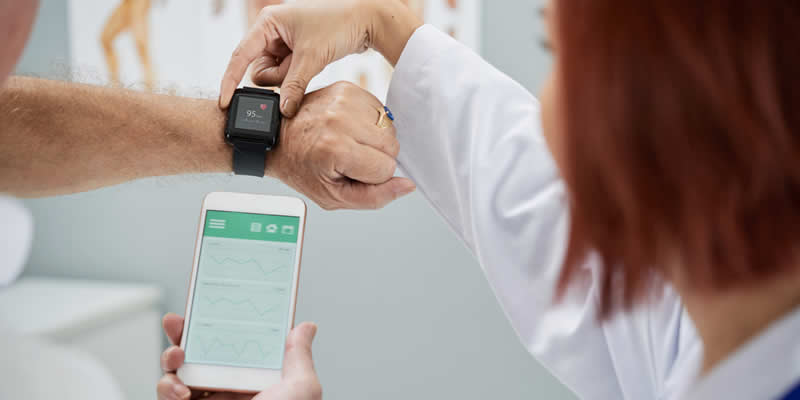Researchers are one step closer to developing a wearable device which uses tears and saliva to gather real-time medical data about certain eye or mouth diseases.
The technology could be used to help manage conditions such as oral ulcers, oral cancer, eye wrinkles and oral or eye infections.
Professor Huanyu ‘Larry’ Cheng, from the Penn State Department of Engineering Science and Mechanics (ESM), said: “We sought to create a device that collects both small and large substances of biofluids such as tears and saliva, which can be analysed for certain conditions on a rapid, continuous basis, rather than waiting on test results from samples in a lab.”
- Fried food consumption linked to heart disease and stroke
- Wearable device developed that can measure stress levels
The idea is to place small, discreet sensors somewhere close to the person’s tear duct or mouth so the device could accurately collect the samples.
Professor Cheng added: “A device like this would have to be discreet, soft and comfortable for a patient to agree to wear it, and it would have to be a low-cost option for patients.”
At the moment the team are working on creating prototypes of the designs and are also in talks with manufacturers to see if it would be possible to build the device on a large scale.
- Doctor urges people with COVID-19 to buy home oxygen measuring device
- Man puts type 2 diabetes into remission 23 years since diagnosis with Low Carb Program app
Professor Cheng said: “This is a mature technology with a lot of interest behind it. There are many possible uses for the device if it makes it to the commercial marketplace.
“There is strong motivation for us to apply this technology to similar sensing devices in the future.”
Last year his team announced the idea of another similar device which involved wearing a skin patch that collects sweat and tests for pH, sodium and glucose levels, which could be used to help manage hypoglycaemia or diabetes.
More information about how the device works has been published in the Microsystems & Nanoengineering.






